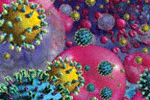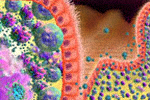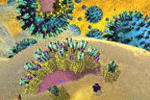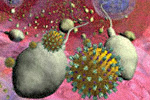Next Live PRN Meeting via Zoom - Free CME/MOC for Clinicians:
|
|
|
|
|
|
|
|
|
|
|
|
|
|
|
|
|
|
|
|
|
|
|
|
|
|
|
|
|
|
|
|
|
|
|
|
|
|
|
|
|
|
|
|
Jürgen Rockstroh, MD
Every two years the European AIDS Clinical Society (EACS) holds its biannual conference on HIV/AIDS, coinfections, and complications, similar in many respects to the annual Conference on Retroviruses and Opportunistic Infections (CROI) in the United States.This year the EACS conference, known as EACS 2023, will be held in Warsaw, Poland. We are fortunate to have Juergen Rockstroh, the current EACS guidelines chair, report to PRN on the highlights of this important international conference, including an update on the evolving epidemiology in Europe, the challenges around HIV care in migrant populations, new data on ART, as well as updates on HIV comorbidities and aging.
|
|
|
|
|
|
|
|
|
Sharon R. Lewin, AO, FRACP, PhD, FAA, FAHMS
HIV cure has been limited to only a few cases over the past couple decades, starting with the Berlin Patient, but what is needed is a safer and scalable cure aimed at far broader populations of people living with HIV. This year, the International AIDS Society focused on HIV cure research from around the world at IAS 2023. We are fortunate to have Dr. Sharon Lewin, the current President of the IAS, who presided over IAS 2023, speak on this critical area of research so that one day we may hopefully be able to transform HIV from a manageable to a curable disease.
|
|
|
M. Ali Rai, MD, PhD
On a recent survey, approximately one-third of our audience responded that they have patients with multi-drug resistant (MDR) HIV-1, which was higher than we anticipated. Although we hope the absolute number of patients failing therapy is small, this statistic underscores the reality that a significant number of us need to continue searching for new treatment options/classes/strategies that can serve the needs of our most vulnerable patients. PRN continues to spotlight emerging treatment research, and we are pleased to continue this effort with Dr. Ali Rai, from the National Institute of Allergy and Infectious Diseases (NIAID), who will help us understand the dimensions of the current challenge, utilize the most up-to-date methods for determining HIV resistance, and ways that you can help your patients access research studies for novel treatment modalities.
|
|
|
|
|
|
|
|
|
|
|
|
|
|
|
|
|
|
|
|
|
|
|
|
|
|
|
|
|
|
|
|
|
|
|
|
|
|
|
The PRN Notebook
|
Provider Resources
|
|
CME/MOC
PRN is pleased to offer this new CME/MOC opportunity designed for physicians, nurse practitioners and physician assistants caring for patients with or at risk for HIV disease and its many complications. Based on content from The PRN Notebook, credit for each course will be available for a limited period of time noted on each activity.
View CME/MOC
|
|
Members Only
Full PRN membership is now open to clinicians nationwide.
- Monthly Meeting Announcements and Pre-registration
- CME/MOC for Meeting Attendees
- Special Events
CLICK HERE TO JOIN OR RETURN
|







